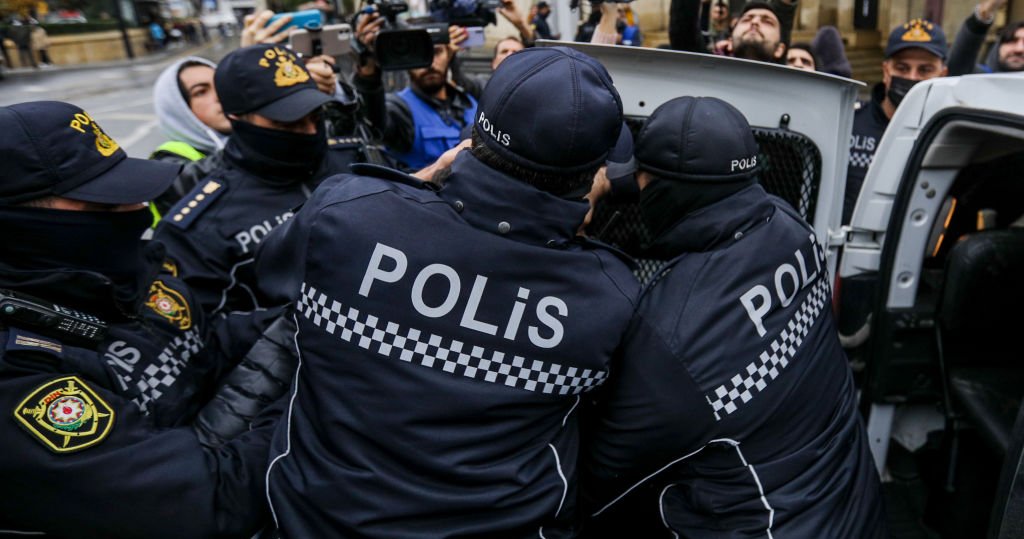
Radio Azadliq underwent a leadership transition after the closure, with a new director, Ilkin Mammadov, put in charge of Azadliq’s Prague office – where RFE/RL is also headquartered – in early 2015.
Mammadov’s arrival kickstarted a process of pushing out journalists who produced content critical of the Azerbaijani government – and producing content that followed the government’s agenda, the six journalists allege.
In turn, they say, Mammadov replaced them with journalists more aligned with Azerbaijan’s ruling authorities – including after they challenged management decisions. openDemocracy approached Mammadov for comment but did not receive a response.
Turkhan Karimov, Radio Azadliq’s former social media head, told openDemocracy that he had been fired in June this year – and then replaced by a new social media editor who had previously worked for Azerbaijani government-affiliated channels in the country.
Karimov, who shot to fame after exposing Baku’s corrupt traffic police on film, says his replacement, Mammadsharif Alakbarov, has previously edited films that appeared to glorify Azerbaijan’s 2020 war in Nagorno-Karabakh – which Azerbaijan won – and praised president Ilham Aliyev.
“After my departure, several journalists were recruited under the leadership of Mammadsharif Alakbarov who didn’t have experience on online media channels but instead had ties to the television networks associated with Azerbaijan’s first lady Mehriban Aliyeva,” Karimov said.
Alakbarov’s Facebook page had contained public posts, seen by openDemocracy, that appeared to support the Azerbaijani government and the Aliyev family’s initiatives in Azerbaijan. His page was deactivated after the allegations against Radio Azadliq first became public on social media.
When contacted, RFE/RL told openDemocracy that Alakbarov had resigned. Alakbarov did not respond to requests for comment from openDemocracy.
Karimov said Mammadov, Alakbarov and Radio Azadliq’s existing editor-in-chief, Zeynal Mammadli, had created a “strategic partnership” that drove personnel and content change at Radio Azadliq.
The corporation said: “RFE/RL makes operational decisions based on a strategic plan, and is guided by how to best reach our audiences with uncensored news.”
Corruption stories
These changes have also meant that Radio Azadliq has since 2016 produced fewer corruption stories that focus on the inordinate wealth accrued by Azerbaijan’s ruling class, Karimov alleged.
He also claimed there had been a move away from partnership with the Organized Crime and Corruption Reporting Project (OCCRP), an international investigative outlet that collaborates with established media to produce and publish stories.
Mammadov, Karimov claimed, “explicitly discouraged” partnership between Radio Azadliq and OCCRP.
“He insisted any cooperation with OCCRP must be pursued outside of regular working hours,” Karimov told openDemocracy, saying there had been a lack of joint projects as a result.
When asked by openDemocracy, OCCRP confirmed it had previously collaborated with Radio Azadliq “a number of years back”, but that the collaboration had lapsed.
“We’re not sure why other than some reporters have said they weren’t given the time they needed to do investigative work,” OCCRP said.
“It also seemed to us that [Radio Azadliq] editorial leadership had little interest in investigative work.”
RFE/RL, however, told us it enjoyed “a productive reporting relationship with OCCRP, and we value our award-winning collaboration”.
Focus on Nagorno-Karabakh
One strand of Radio Azadliq’s coverage has particularly highlighted the changes at RFE/RL, former employees alleged: an excessive focus on Azerbaijan’s 2020 victory against Armenia in Nagorno-Karabakh and its aftermath, and a decline in coverage of human rights violations in other parts of Azerbaijan itself.
The victory in Nagorno-Karabakh has been viewed inside Azerbaijan as a justification for the Aliyev regime’s policies, boosting the regime’s image of Azerbaijan’s “military strength”, said Karimov, who accused Azadliq management of “playing to the hand of the Azerbaijani government” by favouring coverage of the conflict over “coverage of internal protests and human rights violations” in Azerbaijan.
Another former Azadliq journalist, Islam Shikhali, echoed these concerns. There is now, Shikhali said, “a conspicuous absence of attention to domestic human rights violations and societal dilemmas [in Azerbaijan],” in contrast to the regular coverage of Nagorno-Karabakh.
The post Radio Free Europe ‘pro-Azerbaijan’ scandal deepens first appeared on The News And Times – thenewsandtimes.com.
